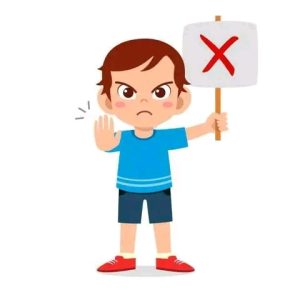Children’s psychology during war in 2025. Is child rearing affected during war
Children’s psychology during war in 2025. Is child rearing affected during war? Yes or no? Explore the impact of war on children’s psychology in 2025. Discover how child-rearing practices are influenced during conflict and the implications for families.
Delve into children’s psychology amid war in 2025. Understand the effects on child-rearing and learn how families can navigate these challenging times.
Investigate the effects of war on children’s mental health in 2025. Find out how child-rearing is impacted and what strategies can support families during conflict.
The Challenges of Raising Children in a Time of War: How to Ensure the Safety and Happiness of Children in Conflict

Introduction: children’s psychology during war:
Children’s psychology during war in 2025. Is child rearing affected during war? Yes or no?
War is one of the biggest challenges families can face, especially when it comes to raising children. In times of war, children are exposed to numerous challenges, including fear, anxiety, and separation from family and friends. In this article, we will explore the challenges of raising children in times of war and how families and individuals can ensure the safety and happiness of children in times of conflict.
1: Challenges of Raising Children in a Time of War:

Children’s psychology during war in 2025. Is child rearing affected during war? Yes or no?
1. Fear and Anxiety: War can cause significant fear and anxiety in children, especially if they are exposed to the sound of weapons or the sight of destruction.
2. Separation from Family and Friends: War can lead to children being separated from their families and friends, which can cause feelings of loneliness and fear.
3. Lack of Resources: War can lead to a shortage of basic resources, such as food, water, and medicine, which can impact the health and safety of children.
4. Children’s Exposure to Violence: War can expose children to violence, whether through the sight of weapons or the sound of gunfire.
2: How to Ensure the Safety and Happiness of Children in Times of War:
Children’s psychology during war in 2025. Is child rearing affected during war? Yes or no?
1. Providing Psychological Support:
Families and individuals must provide psychological support to children, especially if they are experiencing fear or anxiety.
2. Providing Accurate Information:
Families and individuals must provide accurate information to children about war, especially if they are exposed to false or misleading information.
3. Providing Safety:
Families and individuals must provide safety for children, especially if they are exposed to the threat of violence or destruction.
4. Providing Opportunities for Learning and Growth:
Families and individuals must provide opportunities for learning and growth for children, especially if they are exposed to conflict situations.
3: Children in War:
War is one of the events that can greatly impact children and cause them anxiety and fear. Therefore, it is important to work to help them adapt to these events and learn how to live with them. Here are some tips that can help us do this:
First, we must be honest with children about what is happening. We must explain to them what war is and what causes it, but we must be careful how we present this information so as not to cause them anxiety or fear. We must be ready to answer any questions they may have about war.
Second, we must work to provide a safe and stable environment for children. We must reassure them that they are safe and that we will always be with them. We must work to provide children with regular daily routines, including set times for sleeping, waking up, eating, and playing. This routine can help children feel stable and reassured.
Third, we must work to provide psychological support for children. We must be ready to listen to them and help them express their feelings. We must work to provide activities that can help children express their feelings, such as drawing, writing, or playing. We must be careful in how we deal with children who are experiencing anxiety or fear, and we must work to provide them with the necessary psychological support.
Fourth, we must work to provide children with accurate information about the war. We must be prepared to answer any questions they may have about the war, and we must work to provide accurate, age-appropriate information. We must be careful how we present this information so as not to cause them anxiety or fear.
Fifth, we must work to provide activities that can help children cope with the war. We must work to provide activities that can help children express their feelings, such as drawing, writing, or playing. We must be careful in how we deal with children who are experiencing anxiety or fear, and we must work to provide them with the necessary psychological support.
Sixth, we must work to provide support for the family. We must be prepared to listen to the feelings of the family and help them express their feelings. We must work to provide activities that can help the family cope with the war, such as playing, drawing, or writing.
Seventh, we must work to provide support for neighbors and the community. We must be prepared to listen to the feelings of neighbors and the community and help them express their feelings. We must work to provide activities that can help neighbors and the community adapt to war, such as playing, drawing, or writing.
Ultimately, we must work to provide the necessary support and care for children during war. We must be ready to answer any questions they may have about war, and we must work to provide accurate, age-appropriate information. We must be careful in how we deal with children experiencing anxiety or fear, and we must work to provide them with the necessary psychological support.
Children’s psychology during war.
4: Advice for Families and Individuals:
Children’s psychology during war in 2025. Is child rearing affected during war? Yes or no?
1. Respect Children’s Boundaries:
Families and individuals must respect children’s boundaries, especially if they are experiencing fear or anxiety.
2. Provide Time for Play and Activities:
Families and individuals must make time for play and activities for children, especially if they are exposed to conflict situations.
3. Provide Psychological Support:
Families and individuals must provide psychological support for children, especially if they are experiencing fear or anxiety.
4. Providing Safety:
Families and individuals must provide safety for children, especially if they are exposed to the risk of violence or destruction.
Conclusion:
We need a World without a war
Children’s psychology during war in 2025. Is child rearing affected during war? Yes or no?
War is one of the greatest challenges families can face, especially when it comes to raising children. During war, children face numerous challenges, including fear, anxiety, and separation from family and friends.
Children’s psychology during war.



